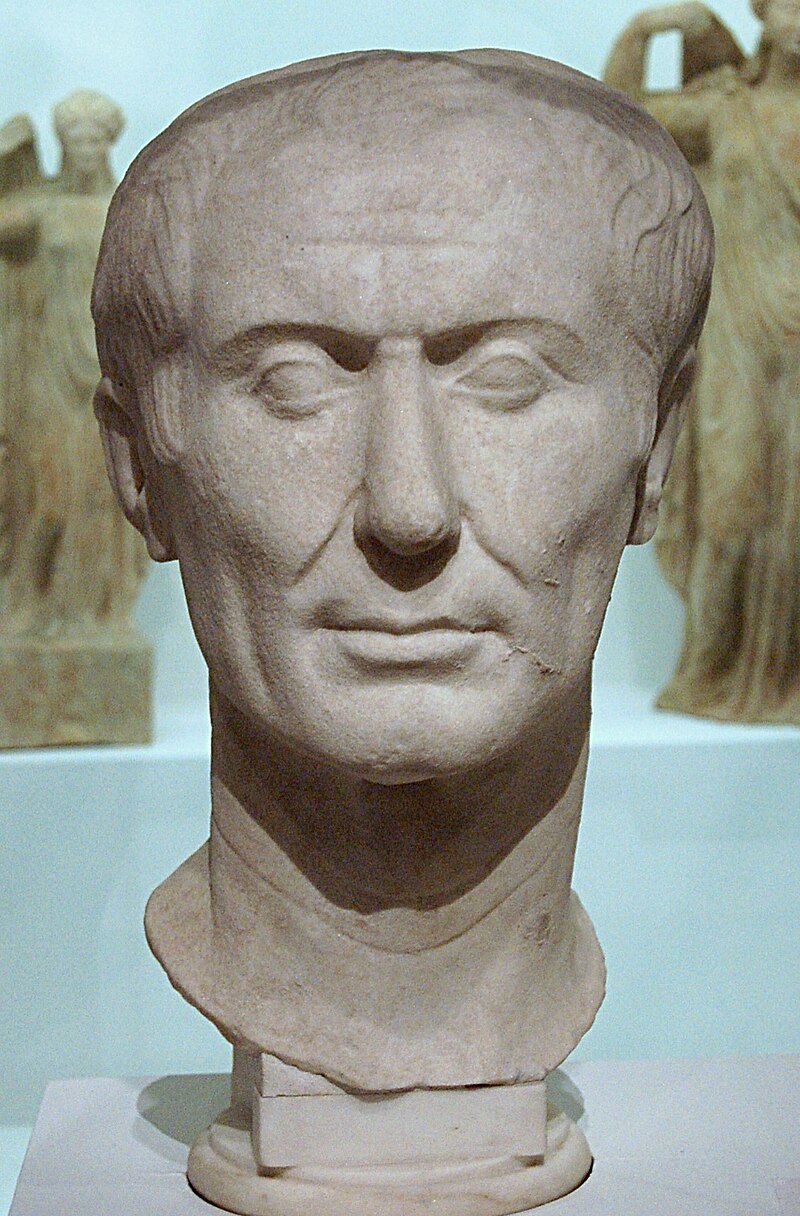Landschlacht, Switzerland, 7 November 2017
I generally have (a) few problems with women.

I have had women bosses, some I have disagreed with.
But not because they were female, but because of their behaviour towards me was unacceptable regardless of the gender exhibiting the behaviour.
Have I, at times, deserved criticism?
Absolutely.
I am neither saint nor model employee.
I have had female colleagues, and I notice that I do treat them differently than their male counterparts.

Above: Sandro Botticelli´s The Birth of Venus (1485)
Let´s be honest.
Society judges men and women differently.
(For now, I will avoid discussion of LGBT issues, because I cannot claim to be an authority on these.
Let it be sufficient to simply ask that the rights and privileges I enjoy as a straight man should not be denied to those who are not.)
I compliment women, but, to avoid the appearance of being a creep or a womaniser, I try to compliment a woman´s style and character, her intelligence and accomplishments, rather than simply her physical attributes.

In the same way that I want to be rejected for the things I´ve done or said rather than for the way my body happens to be shaped or how it has aged, this is the behaviour I hope women see when I interact with them.
I am a married man…..
(How the hell did THAT happen anyway?)
I have been with the same lovely lady for two decades.
We´ve been married for 12 years.
The list of reasons for why She is far superior to me is long.
(Ask my wife!)
I expect from her what I expect for myself, treating her as I would want to be treated.
This doesn´t always happen, but a relationship is an ongoing process, an evolving experiment in personal and interpersonal development.
I would like to think that all the women I have known – sadly, a very short list! – have made me the man I am today.
(Whether I have actually made any progress is a question best answered by my long-suffering wife.
I have been told that a woman´s training of a man is a never-ending process!)
So, do I fight with my wife, seeing how hard I try not to be unpleasant with female bosses, colleagues or clients?
Absolutely.
We are different people, with different perspectives and priorities, which for a healthy relationship requires discussion and debate that may generate emotions and reactions pleasant or unpleasant.
(I am reminded of an old joke:
If a man is in the middle of the forest and no women are around, does this mean he is still wrong?)
I have seen other people´s relationships grow and develop, some successfully, others….not.
I find that as I age that it is becoming more and more difficult for me to be critical of other people´s relationships and their responses to them.
For it is truly difficult to understand another couple´s relationship unless you are one of the partners in the pair in question.
Even then, I cannot claim to always understand my own relationships past or present, or my partners within them.
I thought much about relationships during my visit to Como this past summer….
Como, Italy, 2 August 2017
I try to not generalise about entire groups of people, but this is not always easy.
My wife is German.

Above: The flag of Germany
(Poor lamb!)
The emotions which Germans arouse in others bounces between admiration and fear, depending on the nationality you are talking to.
A Brit and a Frenchman will see Germans just as differently as an Italian or a Swiss would.
I admire German cleverness and thoroughness.
I admire Germans for their ability to make money and their ability to produce things.
To me, Germans work hard and are deserving of success for their efforts.
That having been said, collectively I have found Germans to value efficiency over effect, can be very egocentric, can come across as arrogant and domineering.
Germans will gleefully show you the error of your ways, meaning to be helpful, never realising that not everyone wishes to be shown they are wrong.
Telling a German he is wrong is a waste of time, for he will argue with you to the end of time and despite all evidence to the contrary he will stick to his error with his dying breath.
The only way to get a German to change his ideas is to ignore him, do your thing independently in a better way and then let him do the math for himself.
For Germans, life is serious.
Yet there are times I want to shout at them and plead with them….
“Why, SO serious?”

Above: Heath Ledger (1979 – 2008) as the Joker, The Dark Knight (2008)
It is OK to have moments that are irrelevant or irreverant, without the assistance of alcohol or other substances.
Life can be occasionally flippant, accidental, serendipitious.
Innovation can be a slow process in Germany because creativity is a random and chaotic process and this runs counter to the very German notion of “Ordnung ist alles.”
(Order is everything.)
When I travel with my wife our attitudes towards behaviour are different.
For her, everything not expressly permitted must be prohibited.
For me, everything not expressly prohibited must be permitted.
Germans view life grumpily.
Every solution has its problems, and if life isn´t regulated God only knows how quickly the inevitable doom might be hastened.
I view life more contemplatively.
For me, all things shall pass.
Good will become bad.
Bad will become good.
The circle of life keeps on spinning.

I worry about what I can control and refuse to worry about what I can´t control.
And as I have grown older, I find I also extend this to people.
I can (mostly) control myself.
I can´t (nor do I want to) control others.
So when they do something I don´t like, my attitude is to fight only when it is worthwhile to fight or take flight from the unpleasantness when it isn´t.
This morning we rode the funicular from Como up to Brunate.

We walked up to the Volta Lighthouse and then arriving back in Brunate….

Above: Faro Voltiano
Thus began our problems.
She Who Must Be Obeyed wanted to save money by not taking the funicular back down to Como but instead she wanted to walk down the mountain.
She was convinced that She knew the best way down.
We got lost in a maze of streets, so She wanted us to climb back up the steep incline we had just descended.
I am as stubborn as a cow trapped on a staircase:
Once I have begun to descend I am dead set against re-ascending.
My philosophy was simple.
Como was below, so keep following roads that lead downwards.
Her philosophy was:
There is a better way to descend, so let´s climb upwards until we find it.
To say that this difference of opinion led to some unpleasantness is an understatement.
Descending the winding highway with cars coming at us blindly in the opposite direction around blind curves, She cursed my stubbornness that forced us down the road destined to kill us.
I cursed her inability to admit She was wrong in her ability to navigate without a map and her assumption that the locals knew less than She did about how to get around and her insistence that we suffer rather than spend money to take the funicular down.
So angry that She could spit, She marched madly down the mountain, disappearing from sight, too impatient to wait for me to catch up.
Thus isolated, my thoughts turned to the history of Como and couples the town had known.
Imagine for a moment the comic playwright Oscar Wilde´s entire body of work lost two millennia after his death.
Above: Oscar Wilde (1854 – 1900)
It is the year 4017 and somehow all records of his writing have disappeared, yet his name remains connected to quality comic literature in people´s minds.
Imagine that these folks of the future only know of Oscar Wilde because other playwrights closer in time to this imagined future have mentioned Oscar´s name in their own writing.
So similarly have we a problem in 2017 with the Roman era poet Caecilius Statius (222 – 166 BC)
Caecilius is referenced by other Roman writers, like Catullus and Terence, but over two millennia his comedies have become lost.

Como-born, Caecilius, the subject of Catullus´ poem Carmina 35, is said to have had a girlfriend more learned, more smarter than the muse that inspired his writing.
Suetonius, in his On Poets, when discussing the poet Terence (the anglicised version of his Latin name Publius Terentius Afer), tells the story of how Terence came to the house of Caecilius, whose plays were then dominating the Roman stage, and read to the famous playwright the first scene of his new play.

Above: Terence (195 – 159 BC)
Caecilius was so charmed that he invited Terence to dinner and listened admiringly to the rest of his play.
Admittedly, these mentions of Caecilius tell us little about the man himself or the woman said to be smarter than himself.
But those that mention Caecilius´ name and their attitudes towards women are very interesting.
Terence´s most famous play, the Heauton Timoroumenos (“the Self-Tormentor”), is the story of a father who had forbidden his son to marry the girl of his choice.
The son married her nonetheless.
The father disowned and banished his son, and then, in self-punishing remorse, refused to touch his own wealth, but instead lived in hard labour and poverty.
A neighbour proposes to mediate.
The father asks him why he takes so kindly an interest in the troubles of others.
The neighbour replies, in a world-renowned line to which all the audience applauded:
“Homo sum. Humani nihil a me alienum puto.”
(I am a man. I consider nothing human to be alien to me.)
If this is so, then why do men find women and women find men to be so alien from one another despite the shared humanity?
Could this mystery explain the popularity of modern books like Men Are from Mars, Women Are from Venus?

Let us now consider the case of Catullus (84 . 54 BC)

Above: Marble bust of Catullus, Sirmione, Italy
Catullus was a Latin poet who wrote about his personal life rather than about the commonly-used topic of the day, classical heroes.
His poems were widely appreciated by other poets and he greatly influenced Ovid, Horace, Virgil and others.
Some of his poems have been set to music by the likes of American composers Michael Lutton and Ned Rorem, Icelandic composer Johann Johannson and Finnish jazz singer Reine Rimón.
Catullus´ explicit writing style has shocked many readers, both ancient and modern.
His poems have been preserved for us in an anthology of 116 carmina, which can be divided into four major thematic groups:
– Poems to and about his friends (ex: Carmina 13)
– Erotica: Some about his homosexual desires and acts, but most about women, especially about one he calls “Lesbia” – the false name for his married girlfriend Clodia. (ex: Carmina 50 and Carmina 99)
– Invectives: Often rude and sometimes downright obscene poems targeted at friends-turned-traitors, other lovers of Lesbia, well-known politicians (ex: Julius Caesar) and rhetors, including Cicero.

Above: Bust of Julius Caesar (100 -44 BC), Archaeological Museum, Turin
(According to Suetonius, Caesar did not deny that Catullus´ lampoons left an indelible stain on his reputation, but when Catullus apologized, Caesar invited the poet to dinner.)
– Condolences: Some poems of Catullus are solemn in nature (ex: Carmina 96 comforts a friend in the death of a loved one; Carmina 101 laments the death of Catullus´ brother.)
We know Catullus more intimately than most Roman poets, because his subject is nearly always himself.
His lyric cries of love and hate reveal a sensitive and kindly spirit, capable of generous feeling, but he could also be unpleasantly self-centred, deliberately rude and merciless to his enemies.
He published his enemies´ most private peculiarities.
“He is so foul of breath that if he should open his mouth all persons near him would fall dead.”
Catullus oscillates easily between feelings and faeces, kisses and copulation.
His is the rough poetry of the dirty street corner mixed with civilised refinement, a poetic downtown man with uptown pretensions, who felt that he must salt his lines with dirt to hold his audience.
Think of a Latin William Shakespeare mixed with Henry Miller.
All his poems describe Catullus´ lifestyle and his friends who lived their lives withdrawn from politics.
They were interested mainly in poetry and love.
Which brings us to a (perhaps) smarter woman named Clodia.
The liveliest lady of Catullus´ group of friends was Clodia Pulchra Metellus.

Above: Image of Clodia, Promptuari Iconom insigniorum, Guillaume Rouillé, 1553
Apuleius, in his Apology, assures us that it was she whom Catullus named Lesbia and always loved.
Arriving in Rome at the age of 22, Catullus cultivated her friendship while her husband, Quintus Caecilius Metellus was away governing Gaul.

Above: Catullus at Lesbia´s by Sir Lawrence Alma-Tadima
Catullus was fascinated the moment Clodia “set her shining foot on the well-worn threshold”.
Catullus called her his “lustrous goddess of the delicate step.”
And indeed a woman´s walk, like her voice, may be in itself a sufficient seduction.
Clodia accepted him graciously as one of her worshippers, and the enraptured poet laid at her feet the most beautiful lyrics in the Latin language.
For awhile Catullus was consumed with happiness, played attendance upon her daily, read his poems to her, and forgot everything but his infatuation:
“Let us live, Lesbia mine, and love,
And all the mumbling of harsh old men
We shall reckon as a pennyworth.
Suns may sink and return.
For us, when once our brief sun has set,
There comes the long sleep of everlasting night.
Give me a thousand kisses, then a hundred,
Then another thousand, then a second hundred,
Then still another thousand, then a hundred.
And when we shall have reached many thousands
We shall confuse the count, lest we should ever know,
Or some mean soul should envy us,
Learning the great sum of our kisses.”
History does not record how long this ecstasy lasted, but probably his thousands wearied her, and she who had betrayed her husband for Catullus found it a relief to betray Catullus for another.
Her “benefactions” now ranged so widely that Catullus madly fancied her “embracing at once three hundred adulterers.”
In the very heat of his love, Catullus came to hate Claudio and rejected her protestations of fidelity:
“A woman´s words to hungry lover said
Should be upon the flowing winds inscribed,
Upon swift streams engraved.”
To be fair to Catullus, he realized that women might have similar opinions regarding men when one reads his Camina 64, as Ariadne complains of being abandoned by her lover Theseus:
“Now already let no woman trust a man swearing,
Let none hope that the speeches of man are faithful,
For whom while the desiring mind is eager to grasp something,
They fear to swear nothing, they spare to promise nothing.
But as soon as the lust of the desiring mind has been satisfied
They feared the words as nothing, they care for the false oaths not at all.”
In the days of the dying Roman Republic, adultery was so common as to attract little attention unless played up for political purposes.
Practically every well-to-do woman had at least one divorce.
This was not the fault of women.
It resulted largely from the subordination of marriage, in the upper classes, to money and politics.
Older men chose wives, or young men had wives chosen for them, to get a rich dowry or make advantageous connections.
Rome had become a matrimonial agency.
Such unions, such political marriages, ended as soon as their utility ended.
The husband looked for another wife as a stepping stone to higher status or greater wealth.
He did not need give a reason.
He merely sent his wife a letter announcing her freedom and his.
Some men did not marry at all, alleging distaste for the forwardness and extravagance of the modern woman.
Many men lived in free unions with concubines or slaves.
Under these circumstances women could hardly be blamed for looking lightly upon their marriages vows and seeking in liaisons the romance or affection their political matrimony lacked.
Wealthy women enjoyed their freedom and now moved about almost as freely as Roman men.
They dressed in transparent silks from India and China and ransacked Asia for perfumes and jewelery.
Women divorced their husbands as readily as men their wives.
A growing proportion of women sought expression in cultural pursuits:
They learned Greek, studied philosophy, wrote poetry, gave public lectures, played, sang and danced.
Some engaged in business.
A few practiced medicine or law.
Clodia was the most prominent of these ladies who in this period supplemented their husbands with a succession of lovers.
She had a strong passion for the rights of women, shocked the older generation by going about unchaperoned with men after her marriage, accosted people who she met and knew and sometimes publicly kissed them, instead of lowering her eyes and crouching in her carriage as proper women were supposed to do.
She invited her male friends to dine with her while her husband absented himself.
She was a clever woman, who could sin with irresistable grace, but she underestimated the selfishness of men.
Each lover demanded her entirely until his appetite waned.
Each became her shocked enemy when she found a new friend.
So Catullus besmeared her with ribald poetry and Caelius, alluding to the price paid for the poorest prostitutes, called her in open court “a one-and-a-half-cent woman”.
Her value as a person was determined by how much she was willing to sacrifice her freedom.
The price of freedom for a woman can be extremely high.
Clodio was a daughter of Appius Claudius Pulcher.
She had three brothers and four sisters.
Along with her brother Clodius, she changed her patrician name to Clodia.
Clodia was married to Quintus Caecilius Metellus Celer, her first cousin, with whom she had a daughter, Caecilius Metella.
The marriage was not happy.
Clodia had several affairs with married men (including the poet, Catullus) and slaves, and became a notorious gambler and drinker.
Arguments with Metellus Celer were constant, often in public.
When he died in strange circumstances in 59 BC, Clodia was suspected of poisoning her husband.
As a widow, Clodia became known for taking several other lovers, including Marcus Caelius Rufus, Catullus’s friend.
This particular affair caused an immense scandal.
After the relationship with Caelius was over in 56 BC, Clodia publicly accused him of attempted poisoning.
The accusation led to a murder charge and trial.
Caelius’ defense advocate was Cicero, who took a harsh approach against her, recorded in his speech Pro Caelio.

Above: Bust of Marcus Tullius Cicero (100 – 43 BC)
Cicero had a personal interest in the case, as Clodia’s brother Clodius was Cicero’s most bitter political enemy.
Cicero accused Clodia of being a seducer and a drunkard and alluded to the persistent rumors of an incestuous relationship with Clodius.
Cicero stated that he “would attack Caelius’ accusers still more vigorously, if I had not a quarrel with that woman’s husband—brother, I meant to say.
I am always making this mistake.
At present, I will proceed with moderation, for I have never thought it my duty to engage in quarrels with any woman, especially with one whom all men have always considered everybody’s friend rather than any one’s enemy.”
He declared her a disgrace to her family.
Cicero’s own marriage to his wife Terentia suffered from her persistent suspicions that Cicero was conducting an illicit affair with Clodia.
Caelius was found not guilty, and after the trial little or possibly nothing is heard of Clodia, and the date of her death is uncertain.
Why do we insist that a man can be promiscous as much as he wants, but a woman can´t?
A woman´s body is her own, yet men continue to insist upon an exclusivity over it, even to the point of how her body is to be displayed.
Over millennia women, normally the physically weaker gender, have wielded their own power through not only equal or superior intelligence and amazing emotional strength and courage as men possess, but those fortunate enough to be blessed with beauty (or clever or rich enough to enhance what beauty they do have) use this beauty to command attention and admiration to achieve that which desire.

Acceptance of the differences between women and men has not always been easy, as emotions and thoughts have been widely different between the genders.
Despite all the disadvantages that women, even today, must endure, I have rarely met a woman who would prefer to be a man.
We made it, finally, down the mountainside to arrive in Como´s Piazza Cavour.
Mutual hunger and thirst prompted us to put aside our differences long enough to share lunch with another at a salad restaurant.
As I devour lunch like a crazed wolf, I am smiling and thinking:
I married a woman.
I don´t always understand her.
I don´t always agree with her.
As Billy Joel once sang:
She´s always a woman to me.
Life with her is never boring.
Ah, love!
Sources: Wikipedia / Google / Will Durant, Caesar and Christ: A History of Roman Civilization and of Christianity from their beginnings to AD 325

Above: Romeo and Juliet, by Frank Dicksee


